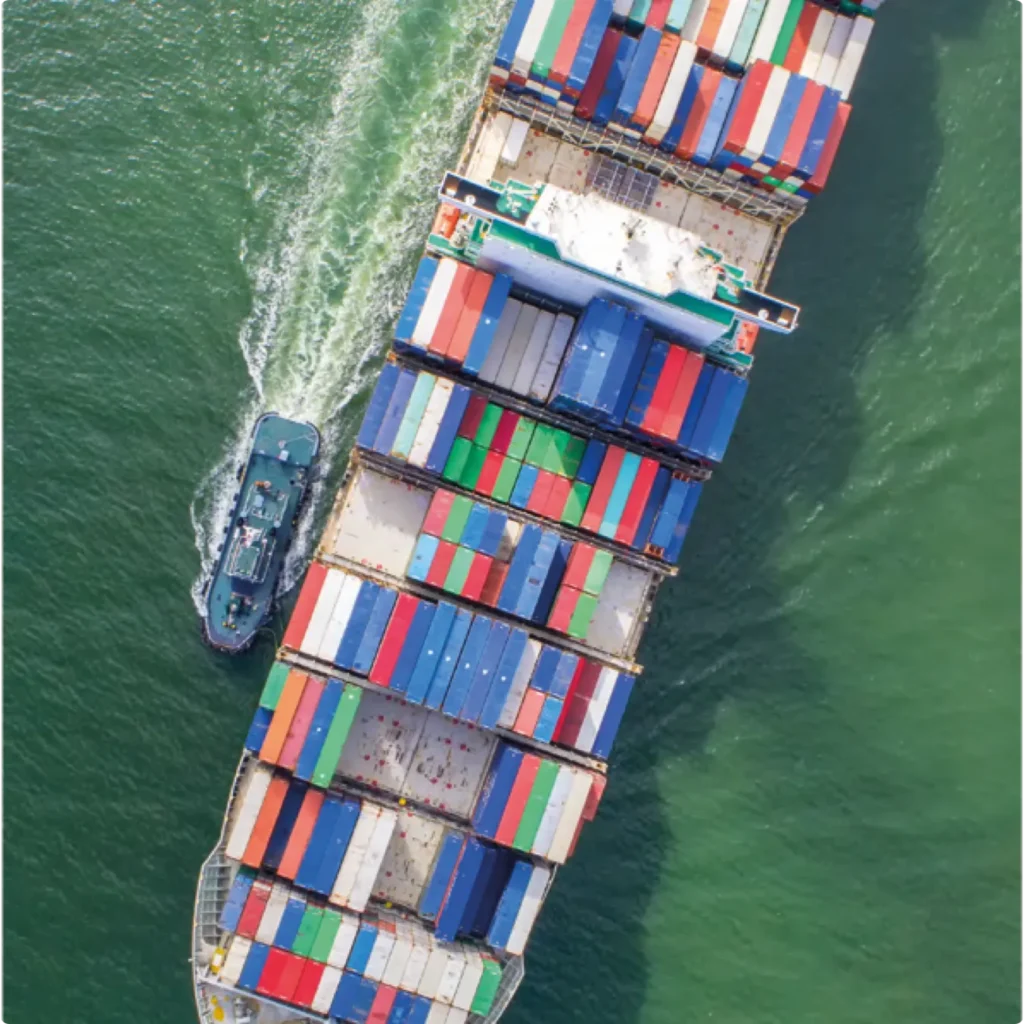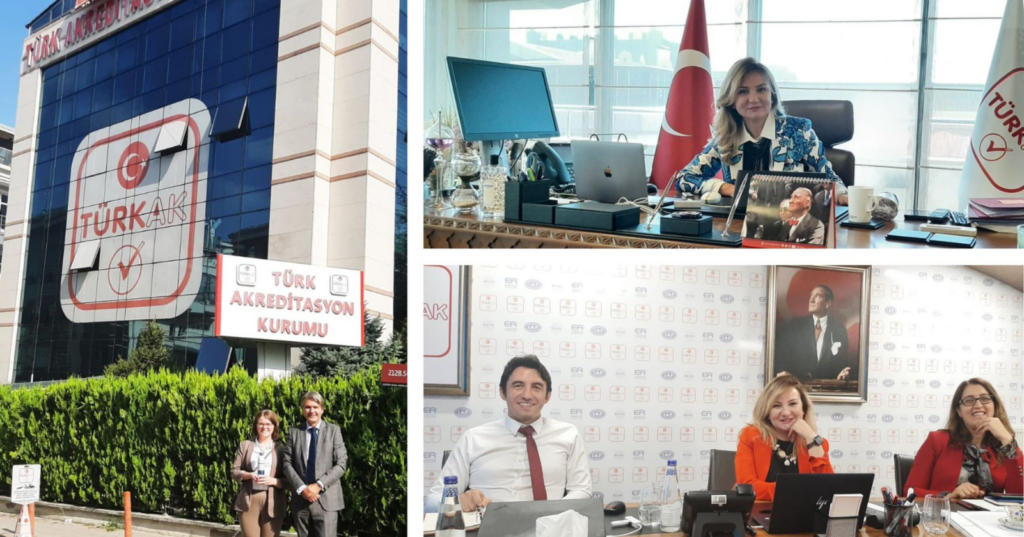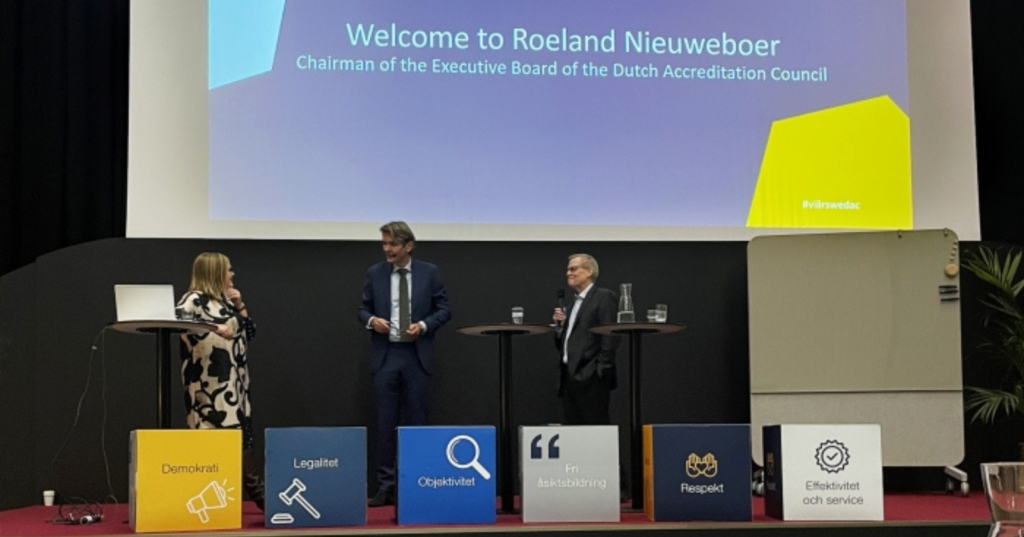Digitalization

Together with our stakeholders we ensure that the quality infrastructure is relevant and future-proof.
The RvA is part of the quality infrastructure ., along with the Netherlands Standardisation Institute NEN and the performers of testing, inspection and certification. These service providers are largely represented in two industry associations: Fenelab (Federation of the Dutch Associations of Laboratories and Inspection Institutions) and NVCI (Dutch Association of Certification Bodies). In addition to technical and policy-related consultations, the RvA’s Executive Board conducts more management-oriented consultations with the executive boards of Fenelab, the Association of Scheme Owners and NVCI.
We also maintain a relationship with the Van Swinden Laboratory (VSL), which is not only accredited but also a partner as a national metrology institute within the Dutch quality infrastructure. We experience the consultations as very useful because the right topics are brought up time and time again.
Last year, for instance, we spoke extensively about the signal report from the Human Environment and Transport Inspectorate (ILT) ‘More insight into and supervision of certification.’
In the summer of 2023, the RvA also organised a round table session with several directors and managers of certification bodies and representatives from the lab world. The Inspector General of the ILT, Mattheus Wassenaar, and Professor Heinrich Winter of the University of Groningen were also present. The intention was to achieve a mutual understanding of the different worlds. The meeting was successful and met the requirement.
At the end of 2023, a broader consultation with the participants of the quality infrastructure took place to formulate a shared core message. This will be followed up in 2024.

The RvA sees the ministries as important stakeholders. With a special position for the Ministry of Economic Affairs and Climate (EZK). The Deputy Secretary General (PSG) fulfills the role of owner and ensures the continuity of the RvA as an organization. The Directorate of Competition and Consumers (MC) is systemically responsible for conformity assessment and accreditation. In addition, MC is responsible for the execution of the statutory tasks by the RvA.
We experience a lot of support from the ministry for the use of accreditation as a policy instrument. The ministry has a good overview of our various policy developments and is very involved. The RvA also participates in a consultation with implementing organisations that is chaired by the DSG of the Ministry. It focuses on improving services to citizens and businesses. This consultation was initiated in response to the childcare benefits scandal.
In 2023, the RvA sent a strong policy signal to seven ministries. The core of the message is that when using self-regulation, i.e. testing or certification under accreditation, the original policy objectives are not always achieved. In response to the letter, there is contact between the RvA and the ministries addressed.
Under the new European CSRD regulations, the national legislator may allow Independent Assurance Services Providers, i.e. certification bodies, to offer services to companies that are subject to CSRD from the 2025 financial year. For the time being, the Dutch legislator does not offer that space to the certification bodies, but rather to the audit firms. As an independent supervisor, the RvA has in any case made the Ministry of Finance aware of the existence and possibilities of the possible role of certification bodies.
In 2016, three German tourists were killed when part of the front mast of a historic clipper broke off. This accident was then investigated by the Dutch Safety Board (OvV). The OvV then made recommendations to the BBZ Association for Professional Charter Shipping, the accredited inspection bodies, the Human Environment and Transport Inspectorate and the RvA. The Minister of Infrastructure and Water Management has adopted these recommendations in a letter to the House of Representatives.
In 2023, the OvV conducted a follow-up investigation into the safety of the historic sailing fleet due to two fatal accidents on board historic sailing ships in 2022. On both ships, the boom fell onto passengers. In the latest report, the OvV states that the safety on the ships has not increased due to deficiencies in supervision. The earlier investigation by the OvV did encourage initiatives, but with insufficient results. It is a task for the Human Environment and Transport Inspectorate, the relevant industry association and the skippers, as well as for the RvA, to improve the supervision.
The RvA is taking the results of the report into account and actively participating in the administrative task force set up by the Minister. This task force is committed to ensuring that passengers can board these ships again with peace of mind in 2024. In 2023 and 2024, the RvA did a great deal to coordinate administrative and operational matter with the Human Environment and Transport Inspectorate and to handle the process surrounding the suspension of one of the inspection bodies.
The RvA has been active abroad for many years. This fits in with our ambition to play a meaningful role on the international accreditation stage. In addition to our membership of the Executive Board of the European Co-operation for Accreditation (EA), the RvA is involved in assessments in various countries. For example, we are asked by customers in Japan, Kenya and Rwanda. Furthermore, we contribute to the international policy development of accreditation, such as harmonization.
The RvA contributes to strengthening the organizational development of various European accreditation bodies. We do this from the perspective of the relevance and future-proofing of accreditation as an instrument. To this end, the organizational development of accreditation bodies as a whole needs a boost at European level.


On behalf of the European Co-operation for Accreditation (EA), we provided the EC with strategic thinking on the implementation of the Cyber Resilience Act (CRA). The CRA sets cybersecurity requirements for wirelessly communicating devices. Our advice concerns the relationship between certification for the CRA and the Cyber Security Act (CSA), whereby a certificate can be used for both Acts. The RvA delivered the deployment via a Task Force Group of the EA.
Another topic of advice is ecodesign in relation to CE markings. The EC is expanding requirements for reuse standards for recycling. Among other things, the RvA has contributed to the development of sustainability modules. The RvA was also directly questioned by the EC about the Green Claims Directive. After all, the reliability of the claims is very important to the EC. These processes offer the RvA the opportunity to contribute ideas to European regulation at an early stage and then to arrange things properly ‘from the get-go’. The RvA receives compensation from the EA for this work.